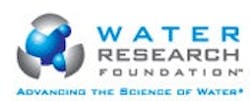Water Research Foundation Outlines Research Agenda
The Water Research Foundation (formerly known as the Awwa Research Foundation) research budget for 2009 is $9.7 million, an increase from 2008. The drinking water research organization sponsors objective, peer-reviewed science to help solve water utilities’ most pressing needs. The Foundation expects to issue requests for proposals (RFPs) for 29 research projects during 2009; most of these will be issued by March 13.
The Foundation’s $9.7 million will be leveraged with congressional funding, partnerships and in-kind support to a total research value of $20 million. Some 30% of this total, or $6 million, will fund research in three strategic areas: climate change; distribution system water quality; and endocrine-disrupting compounds/pharmaceuticals and personal care products.
“These projects represent the cutting edge of drinking water science,” said Chris Rayburn, director of research management at the Water Research Foundation. “We are helping utilities position themselves for change, and we are trying to underpin regulations with sound science. Our ultimate goal is always the same: protecting public health and keeping drinking water healthy, affordable and sustainable.”
The Foundation’s Climate Change initiative funds research that helps utilities and other stakeholders plan for and adapt to expected changes in source water availability and quality due to climate change. The initiative also aims to provide utilities with tools and approaches for minimizing greenhouse gas emissions and reducing their carbon footprint. “Climate change brings a whole new level of uncertainty to the water cycle,” Rayburn said. “If utilities know what is coming, they can plan for it.”
The condition and operation of drinking water distribution systems, and of customer-owned (premise) plumbing, can affect the quality of water delivered to customers, including its taste and smell. The Distribution System Water Quality initiative sponsors research into how utilities can maintain and operate distribution systems to effectively manage distribution system water quality. The initiative is also evaluating the impacts of premise plumbing on drinking water quality, with the eventual goal of developing tools and best practices so that utilities can take appropriate action in helping customers improve water quality at the tap.
The Endocrine-Disrupting Compounds/Pharmaceuticals and Personal Care Products initiative sponsors research into improved methods for monitoring the sources and occurrence of endocrine-disrupting compounds (EDCs) and pharmaceuticals and personal care products (PPCPs) in drinking water, the costs and consequences of treating drinking water to remove trace amounts of these compounds and more effective frameworks for assessing and communicating the risk associated with EDCs and PPCPs in our drinking water.
The following RFPs are anticipated by March 13, 2009, unless otherwise noted:
Climate Change Initiative Projects
• Analysis of Changes in Water Use Under Regional Climate Change Scenarios (#4263)
• Carbon Sequestration (#4265—RFP to be developed through ongoing Foundation project #4203 and released at a later date)
• Changing Mindsets to Promote Design of “Sustainable Infrastructure” (#4264)
• Climate Change Impacts on the Regulatory Landscape: Evaluating Opportunities for Regulatory Change (#4239)
• Vulnerability Assessment And Risk Management Tools For Climate Change: Assessing Potential Impacts And Identifying Adaptation Options (#4262)
Distribution System Water Quality Initiative Projects
• Relationship Between Biological Organic Matter and Pathogen Concentration in Extended Distribution Systems (#4251)
• Research Needs Roadmap for Quantifying the Impacts of Backflow Events on Water Quality and Public Health (#4266)
• Role of Biofilm on Fate and Transport of Waterborne Pathogens in Distribution Systems and Premise Plumbing (#4259)
• Targeted Unsolicited Program -- two new Phase I projects and one Phase II add-on will be awarded.
Endocrine Disrupting Compounds/Pharmaceuticals and Personal Care Products Initiative Projects
• Application of Endocrine Activity Standards to Regulated Chemicals (#4268)
• Benchmarking and Monitoring Strategies for EDCs/PPCPs by Drinking Water Utilities (#4260 - RFP will be delayed pending further progress on existing Foundation project #4167)
• Building a National Utility Network to Address EDC/PPCP Issues (#4261)
• Screening Endocrine Activity of DBPs (#4267)
Other
• Advanced Oxidation and Transformation of Organic Contaminants (#4241)
• Assessing and Enhancing Biological Filtration (#4231)
• Assessing the Significance of Terrestrial and Aquatic Sources of Precursors on DBP Formation (#4245 – RFP expected to be released later in 2009).
• Best Maintenance Practices for Water Distribution System Assets (#4237)
• Enhancing the Value of Molecular Methods to the Water Industry: An e. Coli Case Study (#4238)
• Fate of Non-Regulated DBPs in Distribution Systems (#4242)
• Forecasting the Future: Progress, Changes, and Predictions for the Water Sector (#4232)
• GAC Scale Up Design: What Utilities Need to Know (#4235)
• Growing Our Own: Developing the Workforce to Meet Future Water Sector Needs (#4244)
• Is NSF 61 Relevant for Chloraminating Utilities? (#4243)
• Pioneering the Development of Non-Destructive Condition Assessment Technology for Small Diameter Pipe (#4230)
• Water Well Research Priorities Workshop (#4240)
• Worker Health and Safety: Metrics and Costs (#4236).
Proposals submitted in response to the RFPs will be due in May or July, as specified in the RFP. Guidelines for 2009 solicited proposals will be available by March 1 at www.WaterResearchFoundation.org/ research/projectAdmin/proposalGuidelines.aspx
Individuals/companies interested in submitting a proposal may review the RFPs after their release (March 13) at www.waterresearchfoundation.org/ research/plansAwardsFunding/RFP.aspx or request RFPs from the Water Research Foundation RFP Desk, 6666 W. Quincy Avenue, Denver, CO 80235 (303.347.6118). Be sure to indicate the RFP number. RFPs can also be requested and sent through e-mail at: [email protected]
Source: Water Research Foundation
